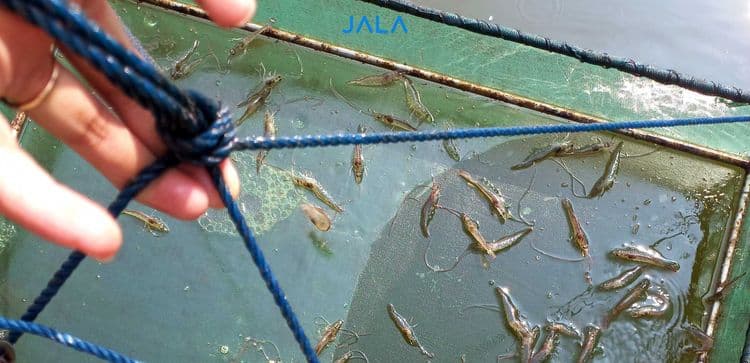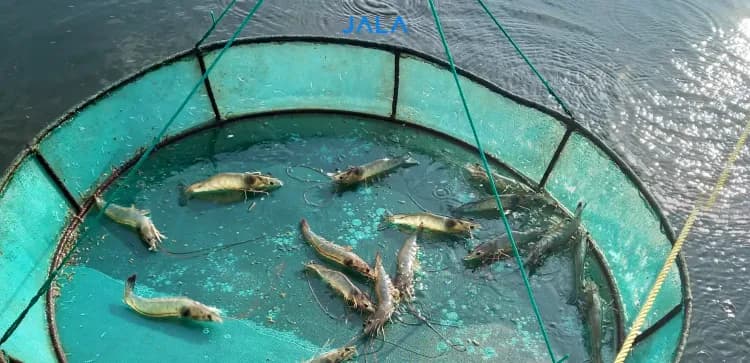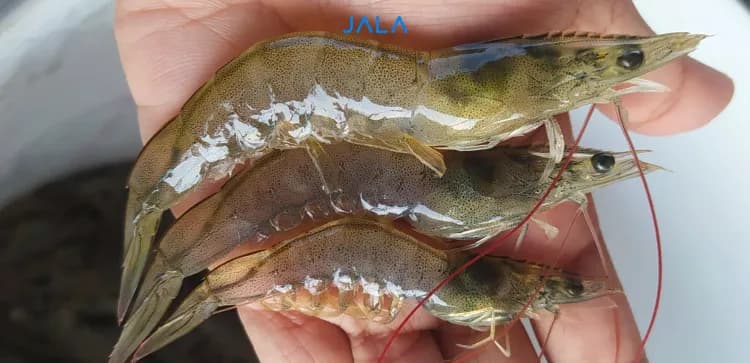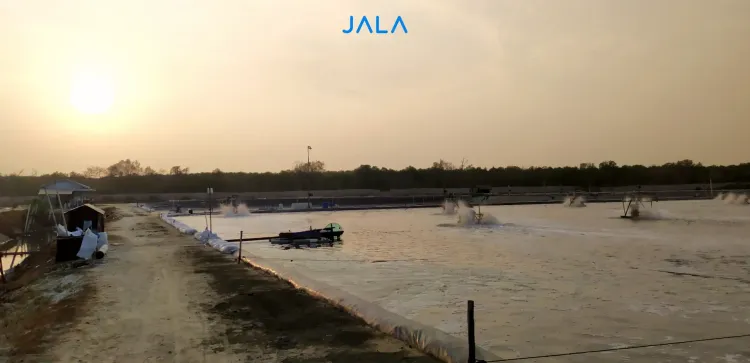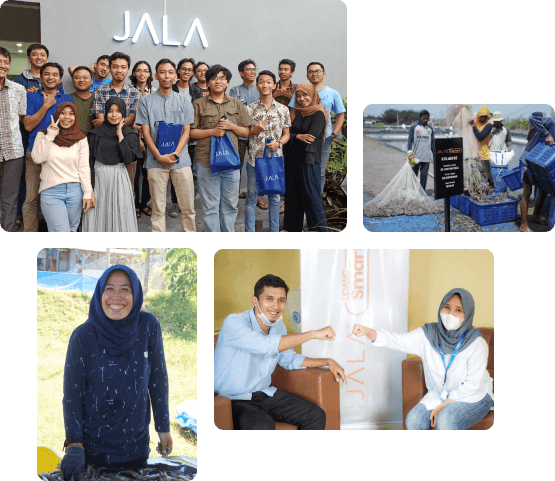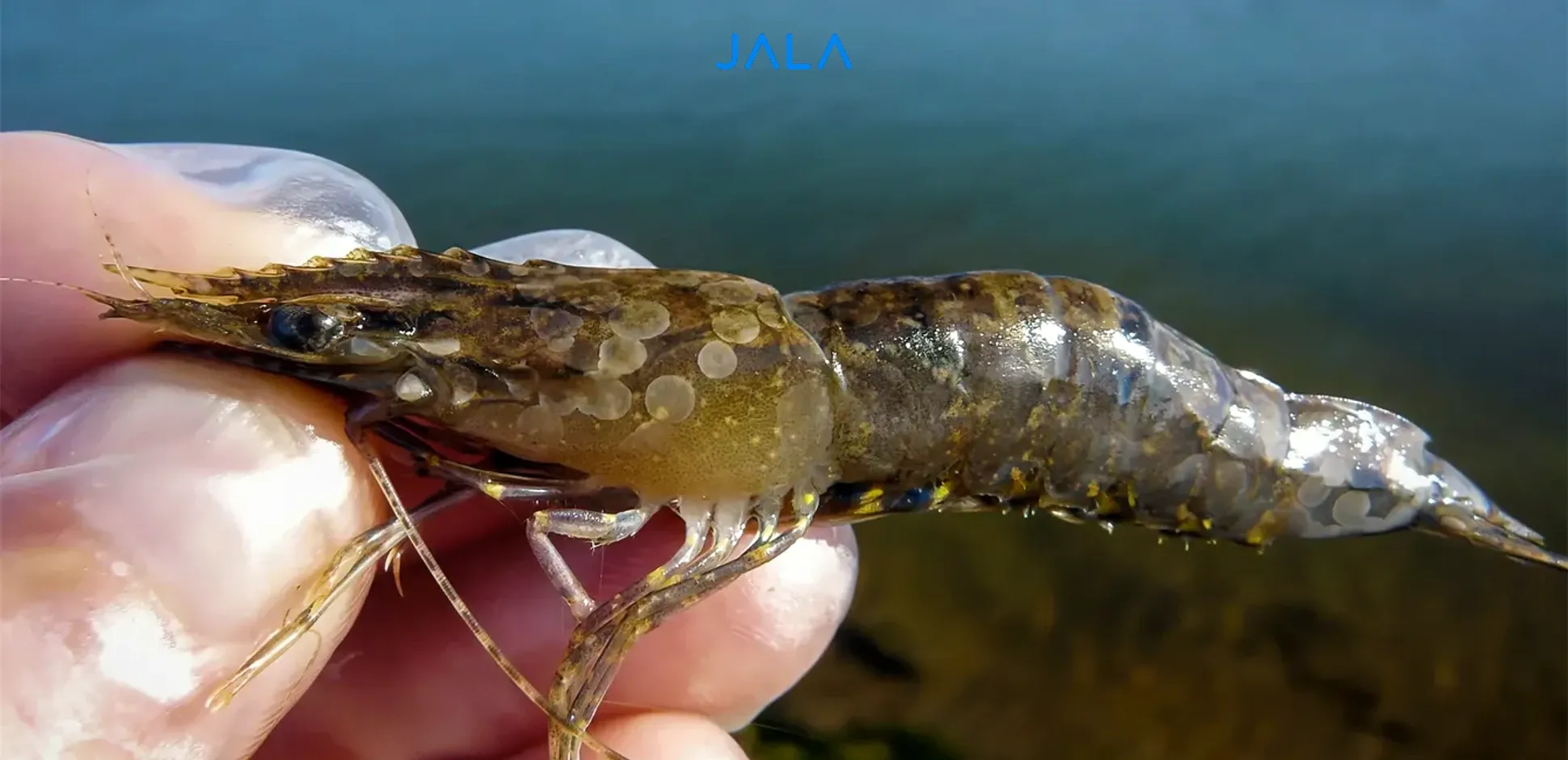
The shrimp industry suffers from many serious pathogens such as EHP, AHPND, IMNV and WSSV. However, for the past three decades, White Spot Disease (WSD caused by WSSV) has been the most prevalent and remains the deadliest disease affecting shrimp aquaculture globally. Indonesia’s shrimp industry, one of the largest and most important in the world, is no exception, making prevention and investigative treatment options a priority for the aquaculture sector.
Understanding WSSV
White Spot Syndrome Virus (WSSV) is a highly contagious virus that poses a significant threat to shrimp farming. As described by experts, WSSV belongs to the Nimaviridae family and is the causative agent of White Spot Disease (Dey et al. 2020). The virus can lead to catastrophic mortality rates, reaching up to 100% in infected shrimp populations within just 3 to 10 days after the onset of clinical symptoms, resulting in visually obvious white spots on shrimp shells. Shrimp farmers need to remain vigilant, as even a small-scale outbreak once seen by the human eye could decimate production in a short span of time.
The risk of WSSV outbreaks is particularly heightened during the rainy season, transition seasons, and colder months, when sudden environmental changes can place additional stress on shrimp, making them more susceptible to pathogens.
Learn more about White Spot Syndrome Virus in Genics’ Pathogen Guide
Biosecurity: The Key to Prevention
Implementing strong biosecurity measures to protect farms from WSSV is key to keeping Indonesia’s shrimp industry thriving. With the nation striving to increase shrimp production, extra caution is needed to prevent the introduction and spread of WSSV within regions and farms.
Emerging Risks
The risks associated with WSSV are brought into focus by understanding the broad vector or host-range of this pathogen, and how persistent it can be in wild populations of crustaceans and other aquatic species. Farmers should be aware of the small physical size of the disease vectors that enable them to easily enter water sources or ponds.
Strengthening biosecurity, ensuring water treatment systems are functional, maintaining optimal pond conditions, and regularly monitoring shrimp health with tools that are fit-for-purpose with statistically meaningful sample plans, are key to keeping WSSV at bay, maintaining healthy shrimp and improving farm productivity.
Behavioural Fever and Potential New Management Approaches
Temperature gradients within a production zone may help reduce the impact of WSSV. Recent laboratory-scale research conducted by Rakhshaninejad, Zheng, and Nauwynck in 2023 has highlighted the potential of "behavioural fever" as a natural defence mechanism for L. vannamei shrimp infected with WSSV. The study found that shrimp actively moved towards warmer water when exposed to WSSV, significantly reducing mortality rates compared to those kept in a fixed-temperature environment.
Shrimp housed in a system with a temperature gradient had a mortality rate of only 28%, compared to 94% for those kept at a consistent 27°C. This suggests that investigating new management protocols, such as creating controlled thermal gradients in infected ponds, could help reduce mortality rates and mitigate the impact of WSSV. These findings underscore the potential opportunity of adapting farming practices to leverage natural behaviours that enhance shrimp resilience against this virus
By focusing on prevention, early-detection, and early intervention, Indonesia can safeguard its shrimp industry as a leading exporter of high-quality shrimp.
About Genics
Genics is an Australian biotechnology company focused on the development of the world's most advanced early pathogen detection and breeding program services, supporting global food security goals and biosecurity measures. Genics proprietary pathogen detection offering, Shrimp MultiPath™ is the world's most comprehensive pathogen detection tool for shrimp farming, offering unparalleled accuracy and speed. With operations in over 50 countries, Genics combines cutting-edge technology, rigorous scientific research, and partnerships with global leaders like CSIRO and Weatherbys Scientific to deliver early disease detection and comprehensive genetic analysis for shrimp.

